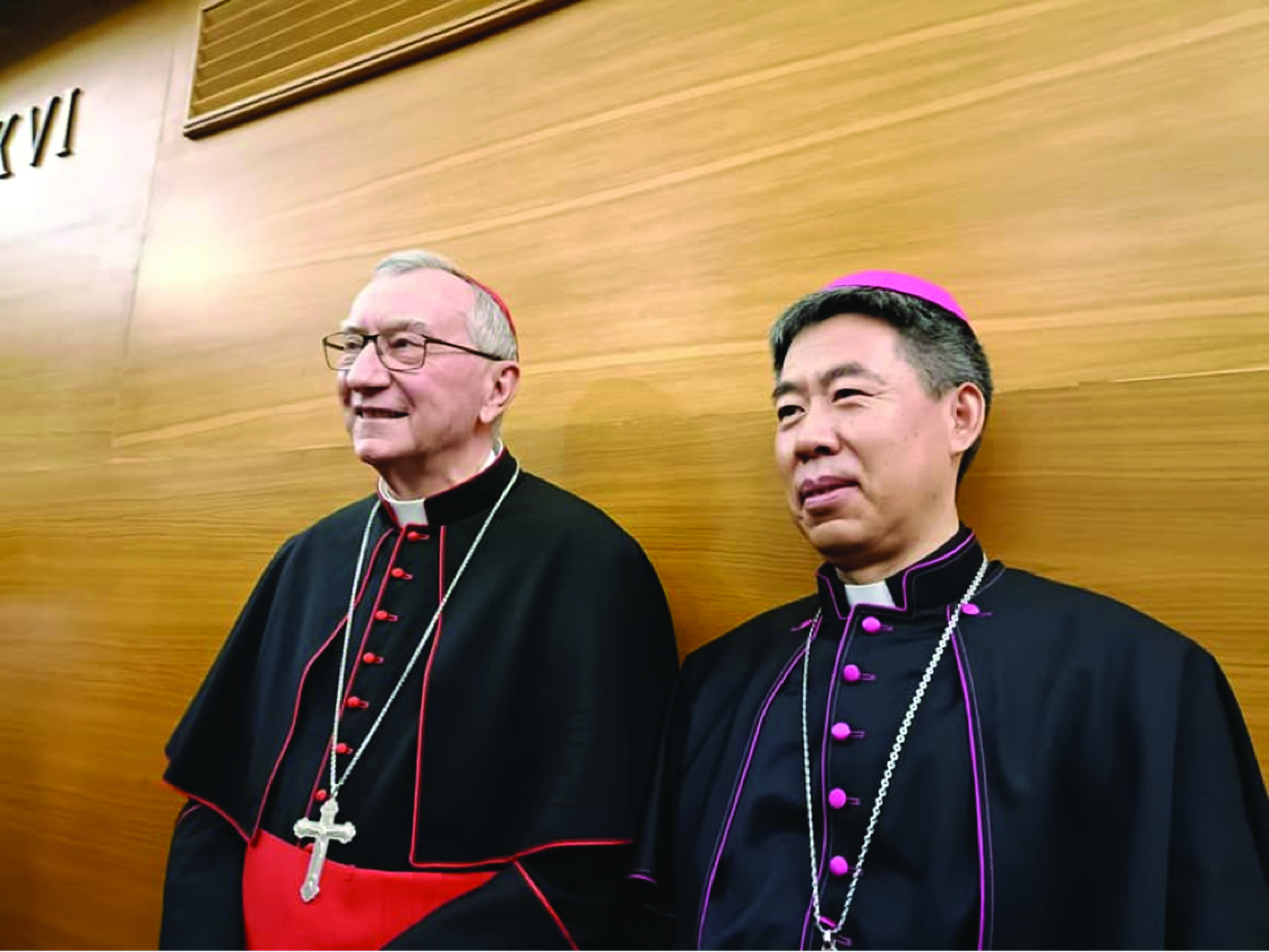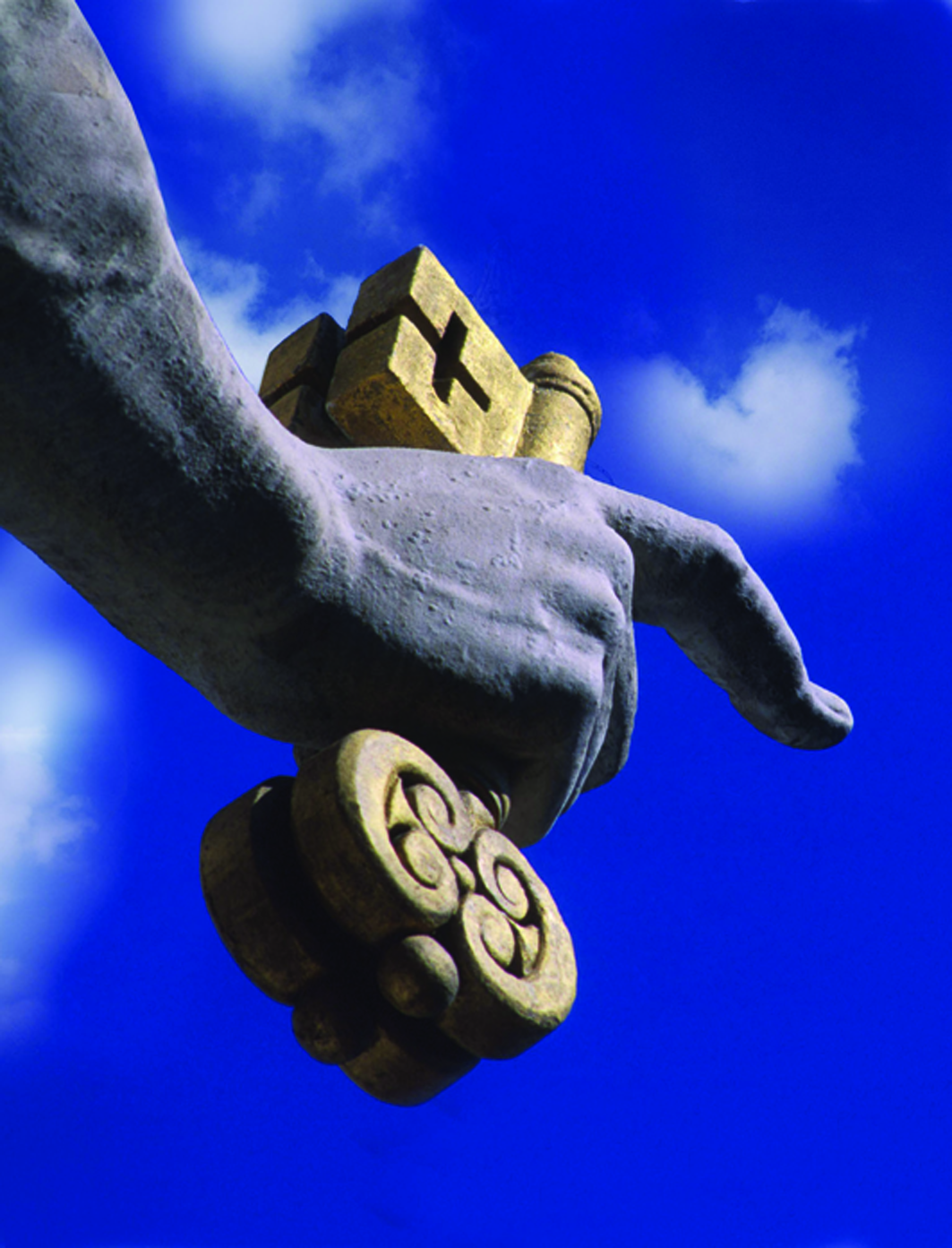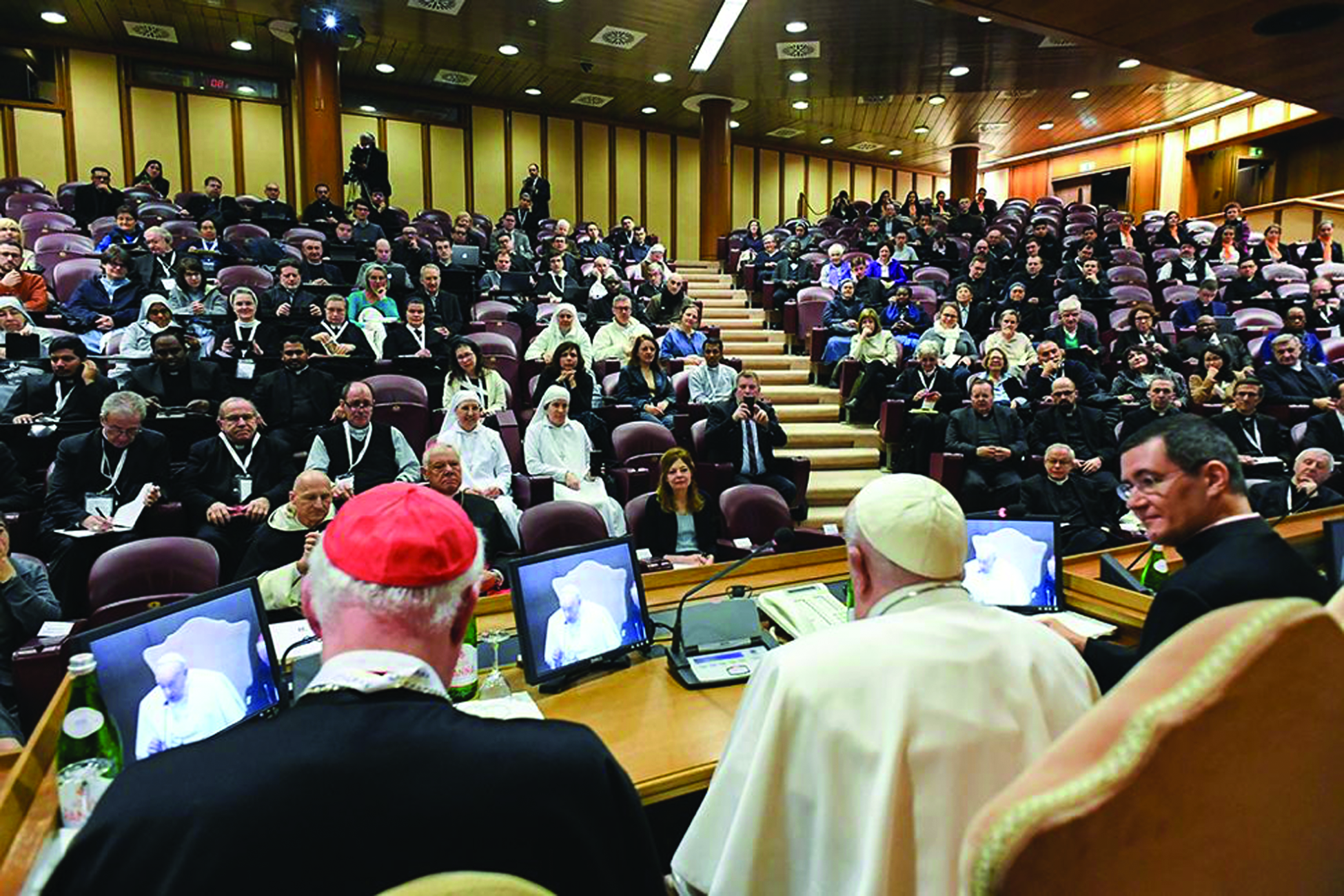This defender of Lebanon was present at the Synod, where he played a major role, but also at a special meeting after the Synod ended to discuss the situation in the Middle East.
To the list of discussion points for the ordinary Consistory of Monday, October 20th, Pope Francis expressly added an ample reflection on the situation of Christians in the Middle East. On this subject, with particular reference to Lebanon, we interviewed Maronite Patriarch Cardinal Béchara Boutros Raï, who began by referring to the recently-closed Synod. On the Middle East, he stated, “I hope the United States will be reconsidering its strategy,” and, “Lebanon’s danger is real, but its army is well-prepared.”
Patriarch and Lebanese Cardinal Béchara Boutros Raï was one of the members of the commission for creating the “Message” for the Extraordinary Synod on the Family. He is the founder of the Arabic Department of Vatican Radio, and was in charge of Lebanese social communications while Bishop of Byblos. When he is in Rome, and he has the chance, he gladly celebrates Sunday Mass – always evocative, very spiritual, rich with chants and incense – at the national Church of Saint Maron. He did so even during the Synod, celebrating mainly in Arabic and partly in Italian, as usual. On the eve of the Consistory, which was to deal in part with Middle Eastern Christians, we asked for his considerations, as the man whose role has traditionally been recognized and proven to be one of upholding and defending Lebanon’s identity and integrity.
Your Beatitude, the first of the two Synods on the family came to a close a few hours ago. You were a member of the commission that created the “Message”: could you tell us its basic points?
Cardinal Béchara Boutros Raï: There are four basic parts: listening to the Synod Fathers and the families of the world, with relative pastoral challenges; the family considered as the “hearth” of love and tenderness; the family as domestic Church, pervaded by God’s presence; prayer together with the Heavenly Father with the intercession of the Holy Family of Nazareth.
During the Synod, there was debate over the situation of the family in different parts of the world. Do families in Lebanon have problems to face that are in common with those faced in the Western world? Or are their problems more specific?
The Christian family in Lebanon is safeguarded in its unity and indissoluble nature by the Lebanese Constitution; for every religion, legislative and juridical autonomy are recognized regarding marriage and its relative civil consequences (the system of personal statutes). This means that Parliament makes no laws pertaining to this area, nor does it do so for any subject having to do with the Christian or Muslim faith. Our problems are of a different nature. In fact, the family in Lebanon is a victim of the many current crises: it has to deal with the war and its consequences, the economic crisis, poverty, emigration, the degradation of spiritual and moral values, pornography, prostitution, unemployment, and disunity due to political divisions.
Today Lebanon hosts over one and a half million Middle Eastern refugees: an enormous number for a small nation that already finds itself in a situation of delicate, and therefore precarious, stability.
We have serious documented problems concerning food, water, the search for housing and work, schools for children and young adults. Plus there is the desire on the part of refugees to return home as soon as possible, and the risk of their being used for political interests and terrorist gains. Indeed, the great amount of refugees – a third of Lebanon’s population, not counting the more than half a million Palestinian refugees – constitutes a serious economic burden and a very grave social and cultural problem, as well as a threat to the country’s stability and security.
The Pope called a Consistory for October 20th that will allow for ample discussion on the Middle East. What will the objectives of this session be? And how can people work to contribute in a concrete way, over and above what the Church already does?
The Consistory was called to inform the members of the College of Cardinals about the situation in the Middle East, and the situation of Christians who live in that part of the world. The Cardinals are called to solidarity with the Church in the Middle East: the entire Church must support, before the governments of those respective countries, the cause of Christians and of peace throughout the whole region. The Consistory will also serve for an in-depth evaluation of the action of the universal Church and the Holy See, with its diplomatic network, and to evaluate what should be required of the international community.
Already at the beginning of October, immediately before the Synod, Pope Francis convened the Middle Eastern Apostolic Nuncios…
In fact, this Consistory is a consequence of that meeting, which took place on October 3rd and 4th. We Eastern Patriarchs will be presenting a document summarizing what had taken place in the prior few weeks, and illustrating what we expect from the Church and the international community.
Speaking of the international community: in September you were in Washington with other Middle Eastern Patriarchs, and the evening of September 11th you were able to meet with President Obama…
President Obama showed himself to be sensitive to the situation of Christians in the Middle East, a dramatic one because of the current wars, even though he didn’t spend too much time on the topic. He was more worried about the atrocities being committed by the so-called Islamic State, and for the threat to peace. He expressed particular interest in Lebanon, given its importance as a country in which Christians and Muslims live contentedly together, with its democracy and human and cultural values. He recognized Lebanon’s difficulties and its need to be defended.
Is it right to think that the United States and its allies have committed grave and repeated strategic errors in regards to Iraq and Syria? If so, do you think that the United States will try to guard against these errors, as far as is possible?
I think they have. I hope they will be reconsidering their strategy, turning it into a strategy for peace throughout the Middle East. This means, first of all, that they must try and solve the conflict between Israel and Palestine, make a serious effort to end the war in Syria and Iraq, and stop aggression by terrorist organizations. In any case, they would need to use their influence to push the Sunni and Shiite nations toward constructive dialogue, in order to eliminate conflict in the region, thus avoiding further humanitarian disasters.
Wouldn’t it be more efficient if certain states were to stop providing weapons or buying petroleum from the Islamic State, and start blocking passage of Islamic extremists across their borders?
Of course, this is our basic request. The whole problem springs from the fact that there are countries in the East and in the West that, unfortunately, for their own political and economic interests, help to maintain various fundamentalist organizations. Some do so with weapons and money, others through the illegal purchase of petroleum, and still others offer free passage across borders to terrorists and mercenaries. Not only this: there are also those who sustain terrorists politically. It is vitally important for the United Nations and the Security Council to stop this type of “crime.”
How would you define the conflict in Syria?
It is a civil war, but it is also a war between Sunni and Shiite Muslims for their own interests. This means that it has now become a war with no sense to it. It has become a matter of who can destroy more and who assassinates more, increasing hatred and forcing entire populaces into exile. There are already 10 million Syrians living as refugees in other countries and regions, uprooted from their homes that have been destroyed or seriously damaged.
Have divisions emerged in Lebanon between Muslims, in evaluating the situation in Syria?
Currently, Lebanese Muslims are rather divided: the Sunnis sustain the Syrian Sunni opposition, and the Shiites sustain the regime which is allied with Iran and the Lebanese Hezbollah. It is notable, however, that before the 2005 assassination of the Sunni Prime Minister, Hariri, both Sunnis and Shiites supported Assad.
In your opinion, after the prolonged Islamist attack on Arsal a few weeks ago (near the border with Syria), and after the battles between Islamists and Hezbollah, is there a concrete danger that Lebanon, too, may see itself becoming a combat zone, with Christians paying the heaviest toll? Or, worse: is there a risk that Lebanon might be torn apart?
Lebanon’s danger is real, but its army is well prepared. Let us hope that we don’t return to the internal conflict of a few years back: none of the factions wants war now, even with the security situation being so precarious and critical. All Lebanese people aspire to and want stability. The danger of dissolution is apparent: the sense of good will is even stronger.
With such a situation, how is it possible that Lebanese Christians haven’t united to elect a new President of the Republic – who, by law, must be Christian? Lebanon has been without a president since May 25, and Parliament has convened time and time again without success…
Our inability to elect a President stems from the political conflict between Lebanese Sunnis and Shiites, reflected in the grave regional conflict between Sunni countries and Shiite countries, particularly between Saudi Arabia (Sunni) and Iran (Shiite).
In conclusion, can you highlight the most serious consequences that Lebanon has suffered because of its current political paralysis?
The worsening of the social and economic crisis, the paralysis of the Constitutional institutions (especially the Parliament and the Governments), the increase in unemployment, the general increase in poverty, the temptation to emigrate, and the deteriorating of civic and moral values.







Facebook Comments